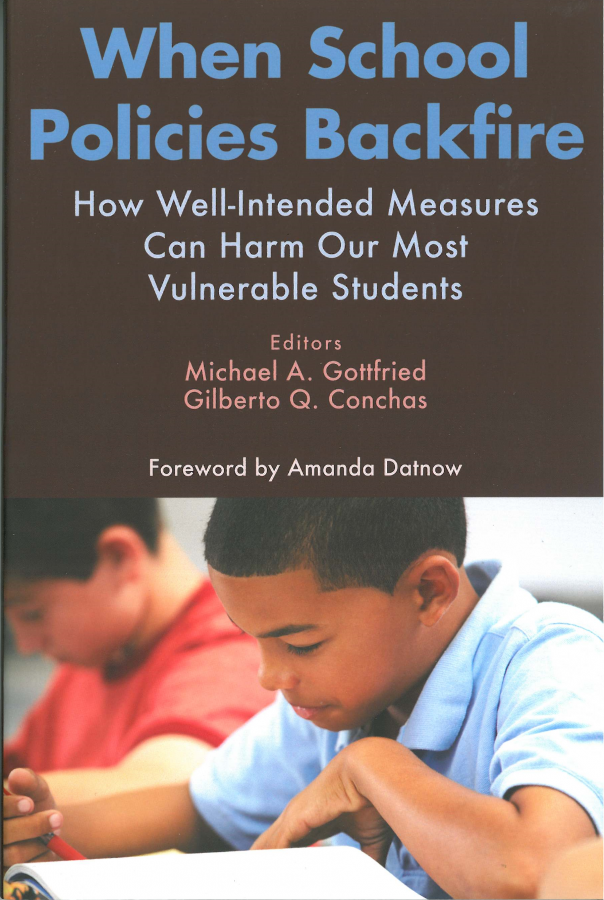When School Policies Backfire: How Well-Intended Measures Can Harm Our Most Vulnerable Students
Michael A. Gottfried and Gilberto Q. Conchas. Harvard Education Press, 2016, 222 pp.
Michael A. Gottfried and Gilberto Q. Conchas. Harvard Education Press, 2016, 222 pp.
 “What happens when wellintended educational policies go wrong, really wrong, exacerbating the very problems they are aiming to solve?” asks Amanda Datnow, professor of education studies at the University of California, San Diego, in the foreword of this book. Good question, although the answer that is spelled out through case studies might not be an easy pill for policymakers and education leaders to swallow.
“What happens when wellintended educational policies go wrong, really wrong, exacerbating the very problems they are aiming to solve?” asks Amanda Datnow, professor of education studies at the University of California, San Diego, in the foreword of this book. Good question, although the answer that is spelled out through case studies might not be an easy pill for policymakers and education leaders to swallow.
The various case studies described in this book address a wide range of areas of education reform. Topics such as accountability, school closure, and technology programs are discussed in detail. Throughout each of the five chapters that focus on the case studies, we learn how and why specific policies have backfired. While each case study is unique, they share a common problem: Policies that were intended to help our most vulnerable students not only failed, but actually made the situation worse.
Why study policy backfire? This book certainly supports the adage that hindsight is 20/20. We must learn from these significant mistakes. When you analyze the case studies in this book, there are common themes that emerge, including lack of communication, the disconnect between theory and practice, and insufficient agency support systems. It is clear that everyone involved in education policies needs to remember to communicate intent to all stakeholders involved and to continually evaluate the effectiveness of the policy while it is being implemented.
The simple yet powerful message that is at the heart of this book, “first, we must do no harm,” needs to be shared with education leaders and lawmakers. When an education policy fails, as some do, that is one thing. But when an education policy backfires and hurts students, that is something entirely different. This book is a reminder that we need to learn from our mistakes and fi x them so that we are not harming our most vulnerable students. Hopefully, policymakers, education leaders, and community members will read this book and learn a valuable lesson. Our students are counting on all of us, and we cannot let them down.
Reviewed by Liz Garden, principal of Florence Roche Elementary School in Groton, Massachusetts.
Copyright © National Association of Elementary School Principals. No part of the articles in NAESP magazines, newsletters, or website may be reproduced in any medium without the permission of the National Association of Elementary School Principals. For more information, view NAESP’s reprint policy.

